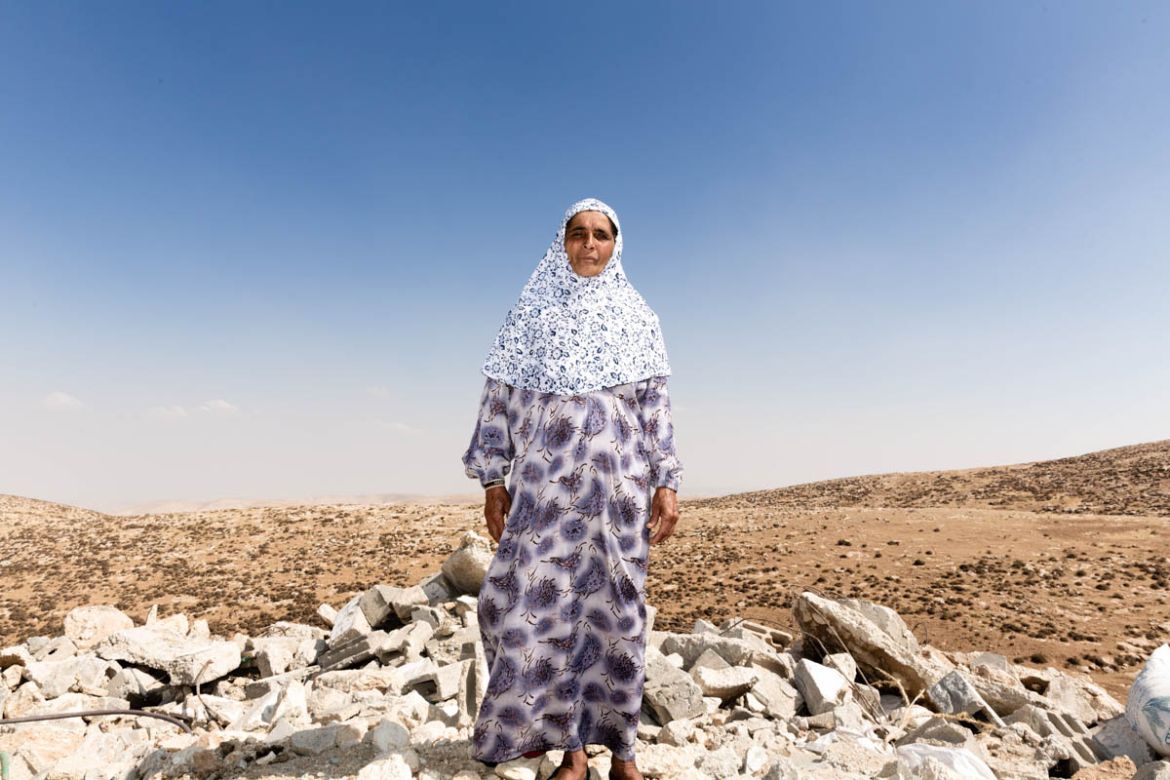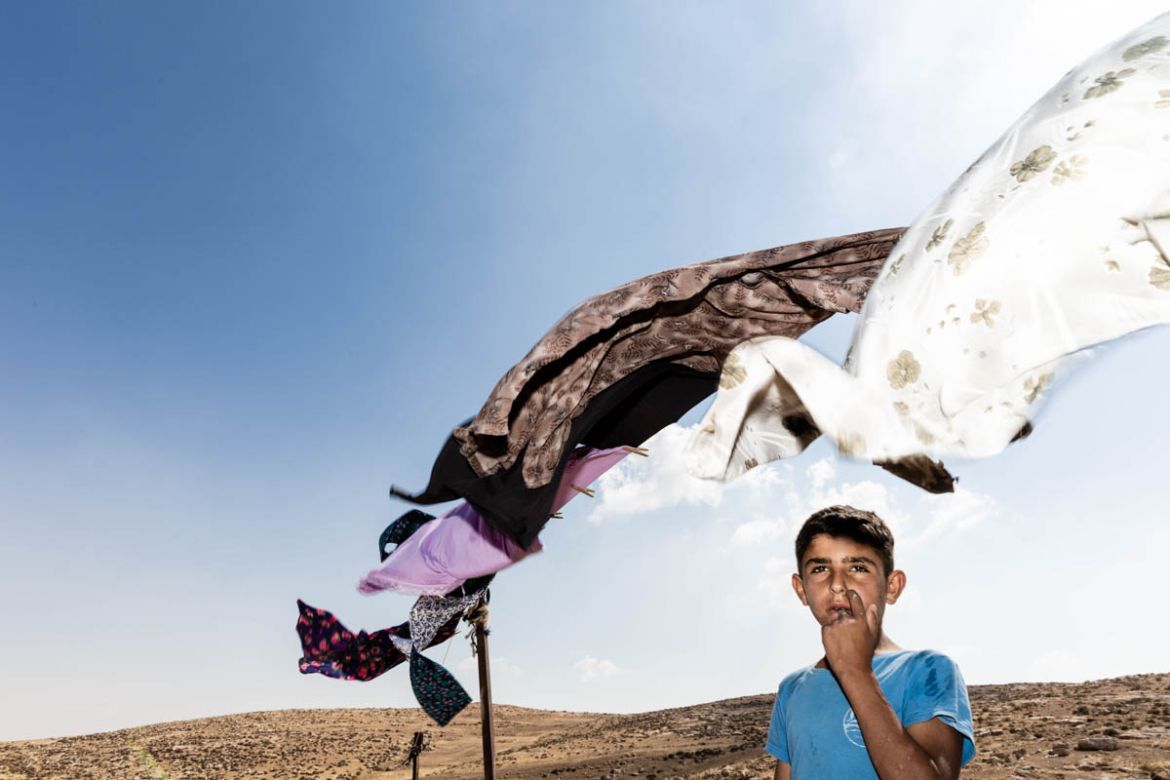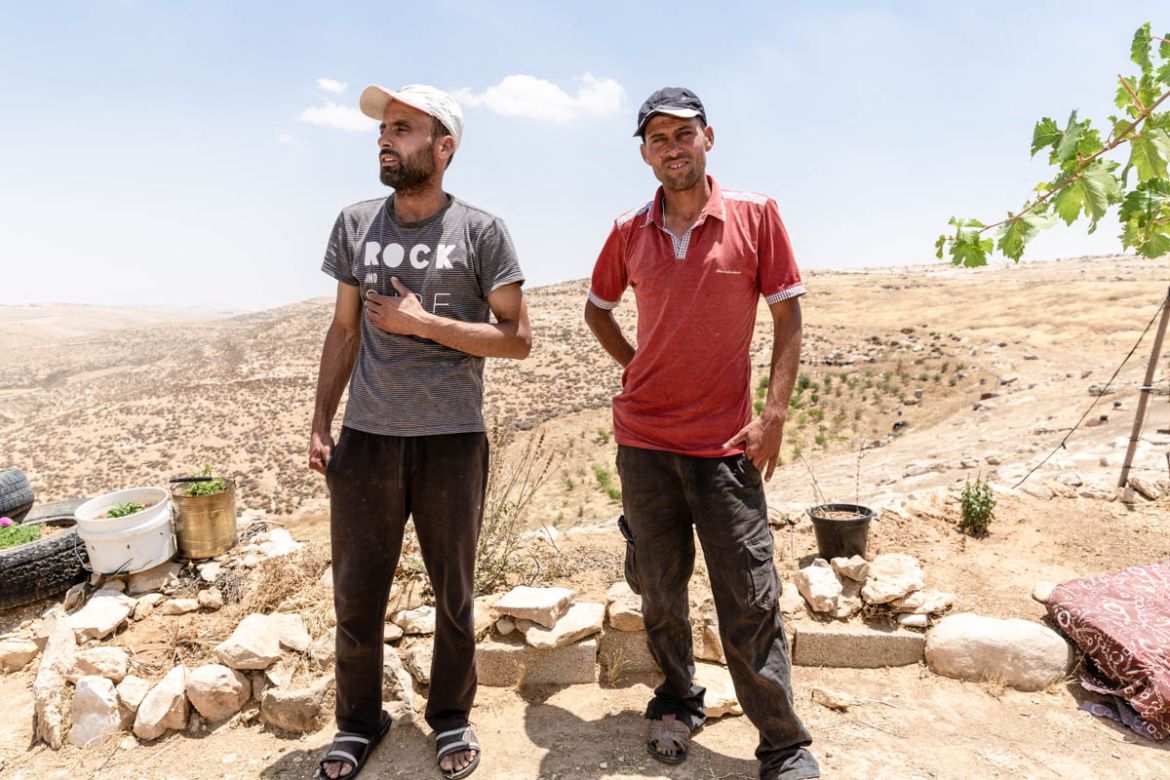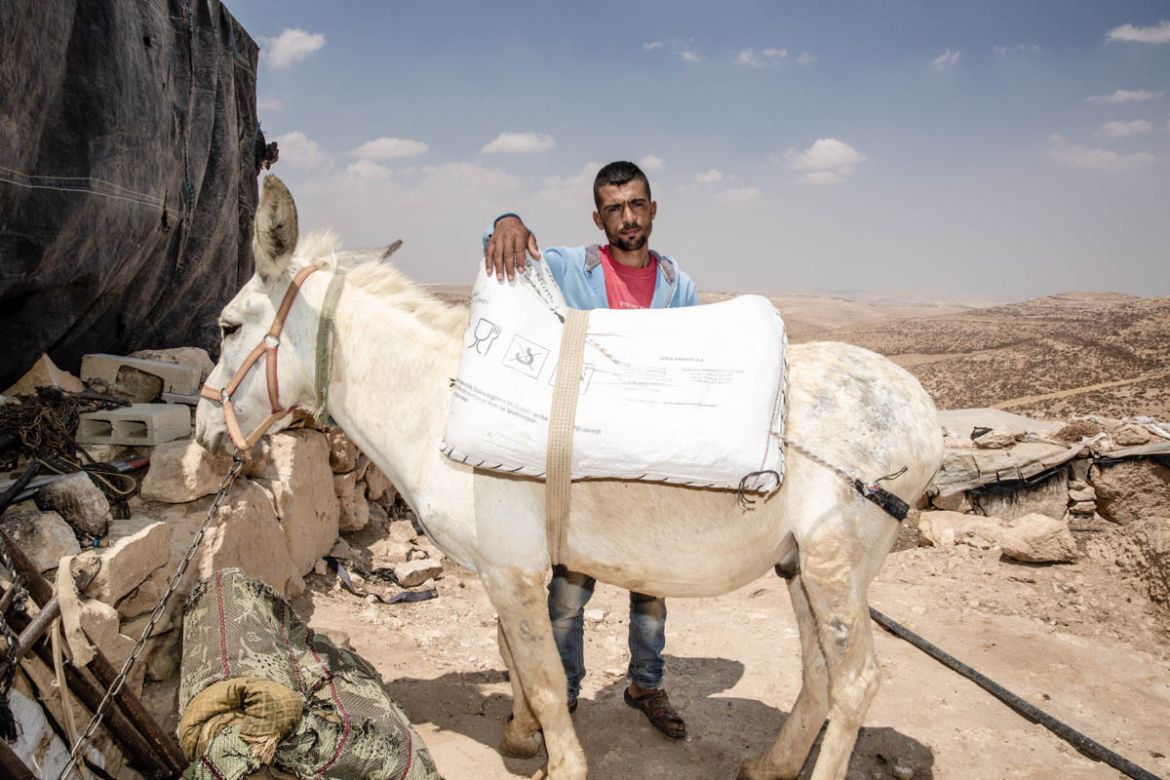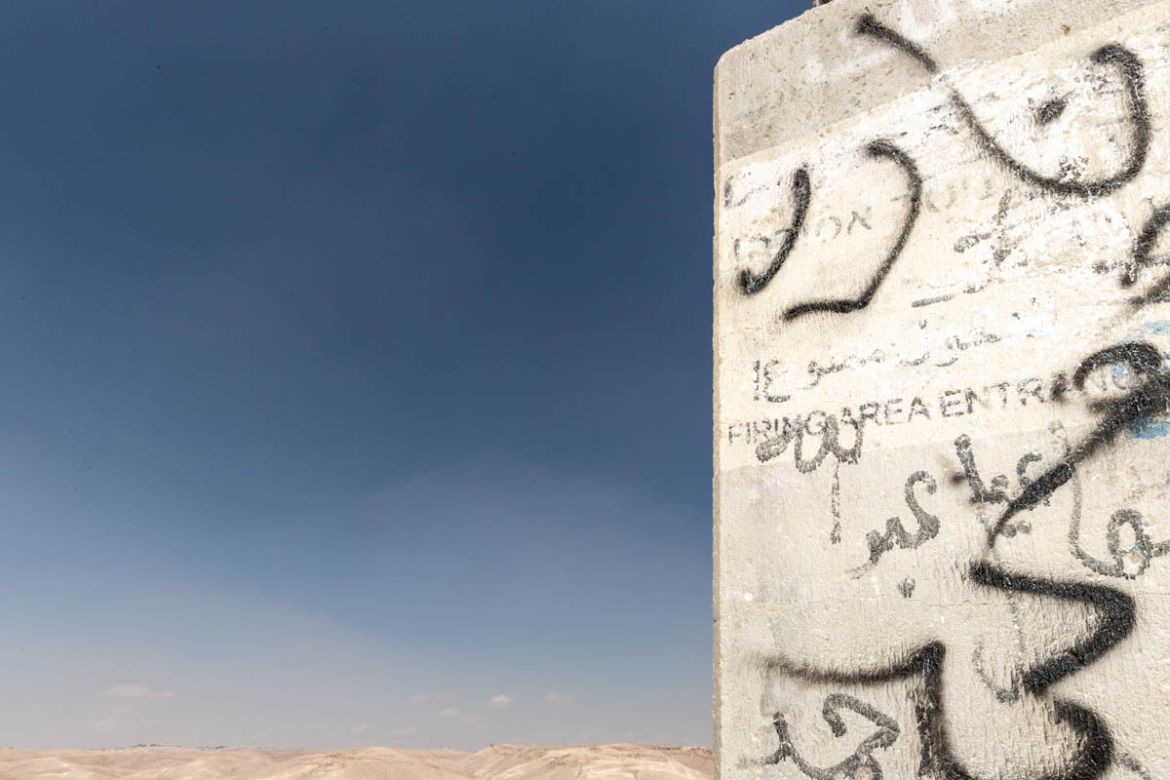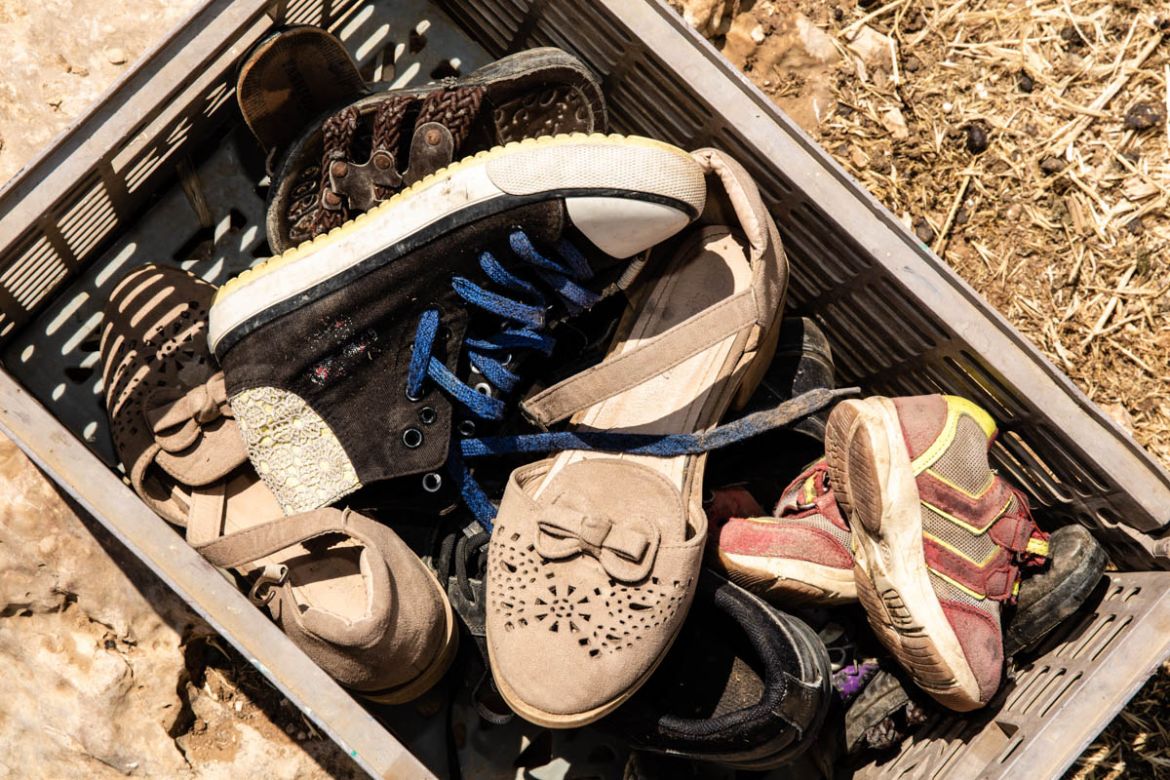In Pictures
The sweet tea and bitter realities of Masafer Yatta
As illegal Israeli settlements expand, Palestinians here are losing their land, livelihoods and their homes.
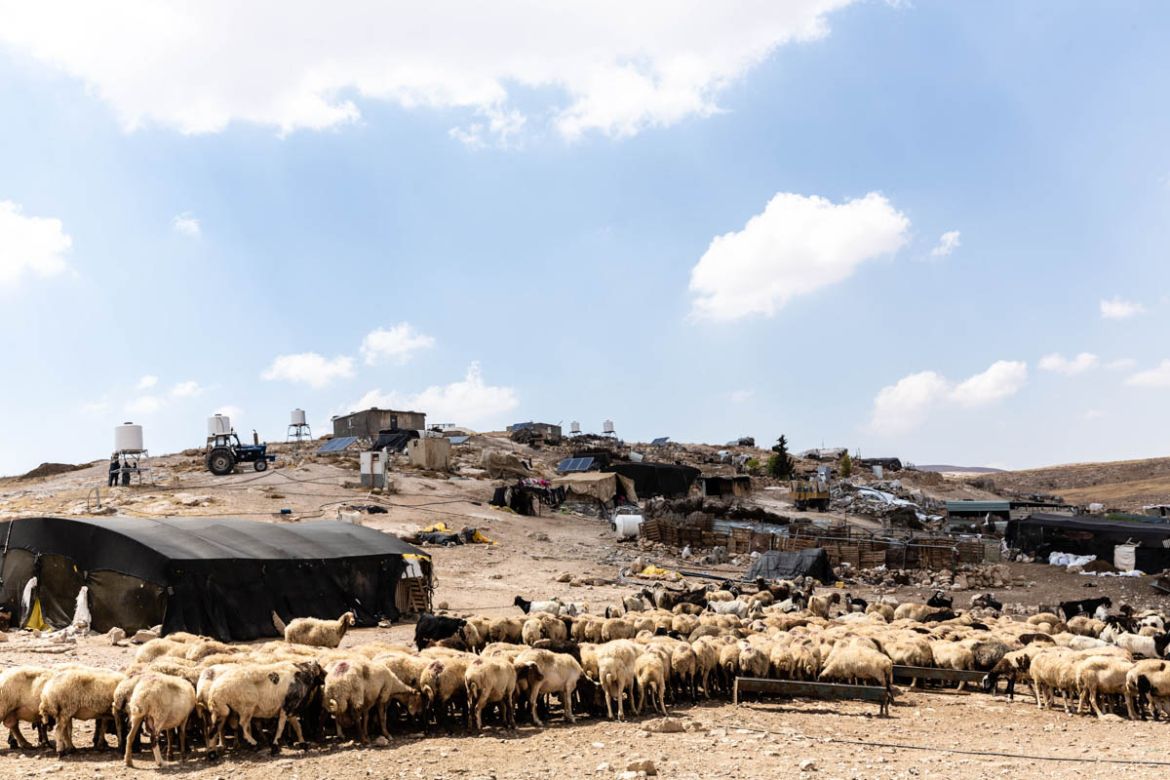
Masafer Yatta, occupied West Bank – The landscape of Masafer Yatta, an area of some 1,400 inhabitants scattered in hamlets across the South Hebron Hills of the occupied West Bank, is austere and inhospitable.
But its people, most of them traditional cave-dwellers, are proud of their openness. When visitors arrive at a home, tea is served, then coffee and fruit and local salty stone yoghurt, followed by another round of tea.
“I used to like it here. It is quiet. People don’t gossip,” says Huda Awad, a 58-year-old widow. “Now the isolation is killing our life.”
Huda moved to the village of Tuba in Masafer Yatta almost four decades ago as the 20-year-old bride of a local man. Just a couple of years earlier, in 1977, the area was declared a military training zone by Israel and all new construction was prohibited.
But life continued: couples married, children were born and people needed a place to live. Like many others, Huda and her husband built a home.
Earlier this year, Huda received a notice from the Israeli Civil Administration stating that her house had been built without the correct permit and would be demolished. In March, military bulldozers arrived and demolished the home.
“All I want is to be able to watch TV,” says Huda, looking at the rubble of what used to be her house. Her solar panel system, the only source of energy, was confiscated, and with it, she lost her television, one of her last pleasures in life, she says.
Over the years, villagers have also lost access to large parts of their agricultural land as a nearby Israeli settlement expanded.
In 1991, a new Israeli outpost was built along the main road connecting Tuba to the town of Yatta. Since December 2000, the Israeli military has banned Palestinians from travelling on this road due to its proximity to the settlement, citing “security reasons”. This compounded their sense of isolation and impacted all areas of life.
“My father is 70,” says Hael, a local herder. “I take him to Yatta for medical check-ups using the detour road. I constantly think that if there is an emergency we won’t make it to the hospital on time.”
There is a sense of living on borrowed time in the community. Some demolition orders have been pending for years as court battles drag on, while others are executed quickly.
While some legal battles have lasted for more than a decade, every family here lives with the daily fear of losing their home.
